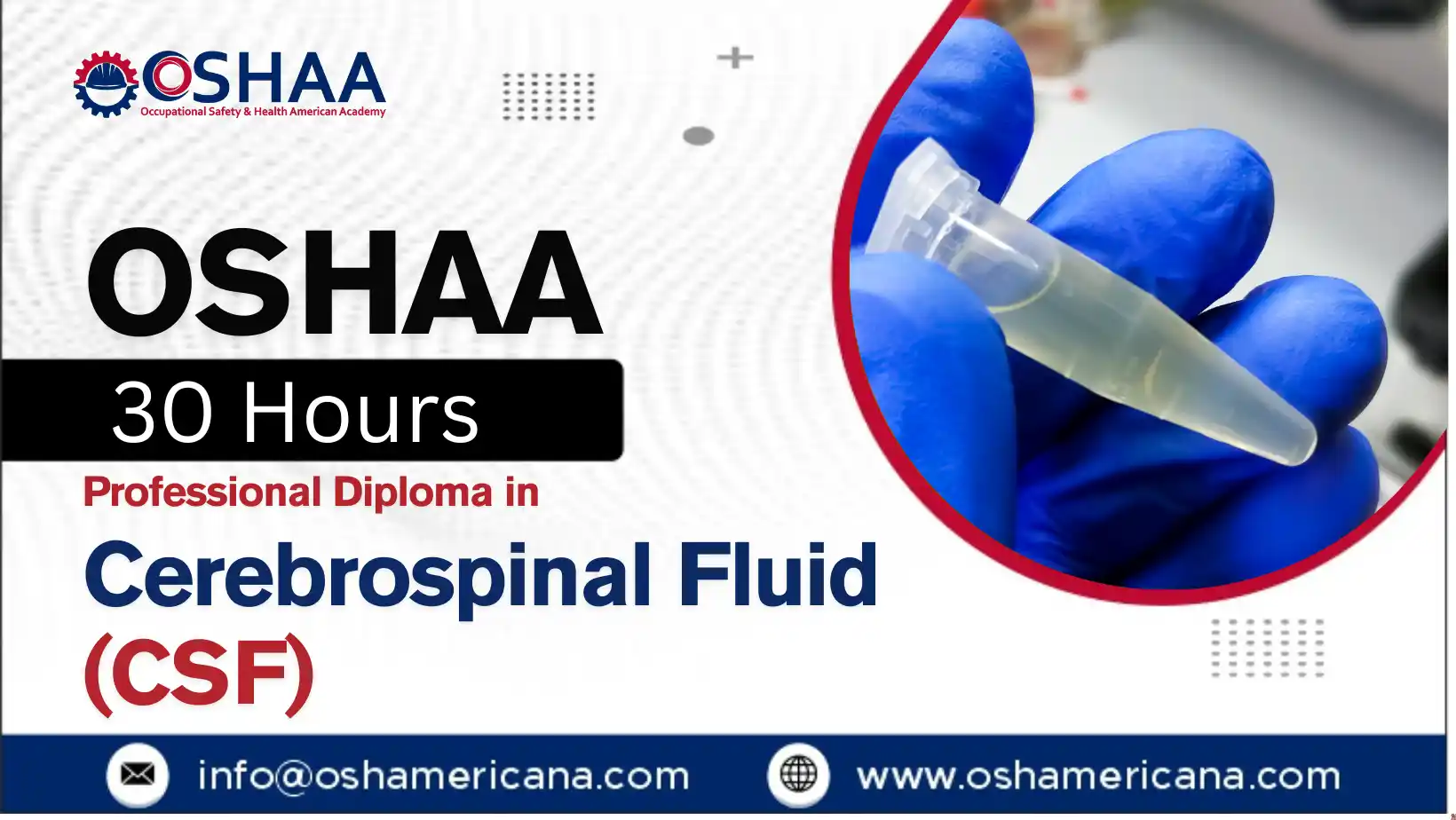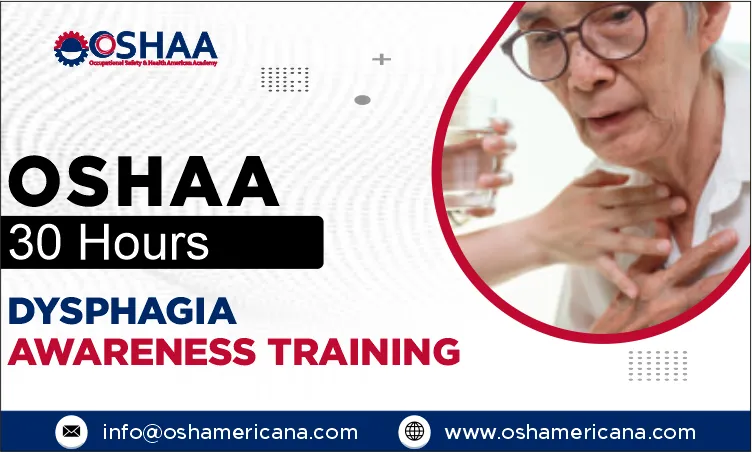The OSHAA 30-Hours Professional Diploma in Cerebrospinal Fluid (CSF) offers a detailed and structured exploration of one of the most vital components of the central nervous system. Designed to meet UK professional standards, this programme equips participants with in-depth knowledge of CSF function, production, regulation, diagnostic relevance, and its clinical significance across a range of neurological and systemic conditions.
Cerebrospinal fluid plays a crucial role in maintaining the health and functionality of the brain and spinal cord. Understanding its structure and behaviour is essential for professionals working in neurology, clinical research, diagnostics, and healthcare support. This diploma aims to provide participants with foundational and applied knowledge necessary to assess and interpret CSF in both normal and pathological conditions.
Spanning 30 guided hours of learning, the diploma covers the anatomy and physiology of CSF, its role in neuroprotection, and its relevance in diagnosing neurological diseases such as meningitis, multiple sclerosis, hydrocephalus, and subarachnoid haemorrhage. The course also examines collection methods, laboratory analysis, and the interpretation of CSF results within clinical contexts. Designed to support those in healthcare, research, and laboratory settings, it provides a valuable blend of theory and practice.
The OSHAA 30-Hours Professional Diploma in Cerebrospinal Fluid offers specialised, high-quality content delivered in a flexible and accessible format. With a strong focus on real-world application and clinical relevance, participants are well-prepared to integrate their knowledge into practice, support diagnostic processes, and contribute to neurological care and research.
Participants who complete this diploma can progress to advanced qualifications in neuroscience, neurodiagnostics, laboratory medicine, or biomedical science. The course also supports professional development for those aiming to work more effectively in hospital labs, research institutions, or clinical settings dealing with neurological health.
OSHAA 30-Hours Professional Diploma in Cerebrospinal Fluid (CSF)
Study Units
Learning Outcomes
Introduction to Cerebrospinal Fluid and the Central Nervous System (3 hours)
- Understand the anatomical relationship between CSF and the central nervous system
- Identify the primary functions of CSF in protecting and supporting neural structures
- Describe the origin and historical significance of CSF in clinical neuroscience
Physiology and Biochemistry of CSF (4 hours)
- Explain the chemical composition of normal CSF and its physiological roles
- Understand how CSF supports metabolic and biochemical balance in the brain
- Recognise changes in CSF composition linked to pathological conditions
CSF Circulation, Regulation, and Homeostasis (3 hours)
- Describe the flow of CSF through the ventricular system and subarachnoid space
- Understand mechanisms involved in CSF production, circulation, and reabsorption
- Identify disruptions in homeostasis that contribute to clinical disorders
Diagnostic Importance of CSF in Neurological Conditions (4 hours)
- Recognise how CSF analysis assists in diagnosing conditions such as meningitis, encephalitis, and multiple sclerosis
- Understand the role of CSF in detecting intracranial bleeding and neoplastic processes
- Interpret the clinical relevance of abnormal CSF findings
CSF Sampling Techniques and Lumbar Puncture Procedures (6 hours)
- Understand the indications, contraindications, and procedural steps for lumbar puncture
- Learn safe handling and collection methods for CSF samples
- Identify potential complications and post-procedure care requirements
Laboratory Analysis and Interpretation of CSF Parameters (4 hours)
- Learn standard laboratory techniques used in CSF examination
- Interpret key parameters such as cell count, protein, glucose, and pressure
- Evaluate CSF results in the context of various neurological diagnoses
Infections, Inflammation, and Immune Markers in CSF (3 hours)
- Identify CSF changes associated with bacterial, viral, and fungal infections
- Understand immune response indicators and their diagnostic relevance
- Interpret CSF findings in inflammatory neurological diseases
CSF in Neurodegenerative and Demyelinating Disorders (3 hours)
- Understand the role of CSF in diagnosing disorders like Alzheimer’s disease and multiple sclerosis
- Identify specific biomarkers and their diagnostic applications
- Analyse the significance of oligoclonal bands and other immunological markers in CSF
Course Benefits – OSHAA 30-Hours Professional Diploma in Cerebrospinal Fluid (CSF)
- Gain a comprehensive understanding of cerebrospinal fluid and its role in maintaining central nervous system health
- Learn how to identify, collect, and interpret CSF samples in clinical and laboratory settings
- Enhance diagnostic accuracy through detailed knowledge of CSF composition, function, and pathology
- Develop practical skills in lumbar puncture preparation, specimen handling, and post-procedure considerations
- Strengthen ability to recognise CSF abnormalities linked to infections, haemorrhages, neurodegenerative, and demyelinating conditions
- Improve confidence in contributing to neurological assessments and multidisciplinary care
- Build competence in interpreting laboratory results, enhancing both diagnostic insight and patient care
- Advance professional development for roles in neurology, biomedical science, diagnostics, and clinical research
- Achieve a recognised qualification aligned with UK healthcare and laboratory practice standards
- Prepare for further education or specialisation in neuroscience, neurodiagnostics, or advanced clinical pathology
The OSHAA 30-Hours Professional Diploma in Cerebrospinal Fluid (CSF) is designed for participants seeking a foundational and applied understanding of CSF within neurological and diagnostic contexts. This course is particularly suitable for:
- Healthcare professionals involved in neurology, clinical diagnostics, or patient care
- Laboratory technicians and biomedical science staff working with CSF samples
- Medical assistants, healthcare support workers, and clinical researchers
- Individuals preparing for careers in neuroscience, pathology, or neurodiagnostic services
- Professionals in academic or training roles requiring in-depth knowledge of CSF physiology and analysis
- Those working in or aspiring to join multidisciplinary teams supporting neurological assessments
This diploma is ideal for participants looking to enhance their clinical, technical, or theoretical expertise in the study and application of cerebrospinal fluid in health and disease.







